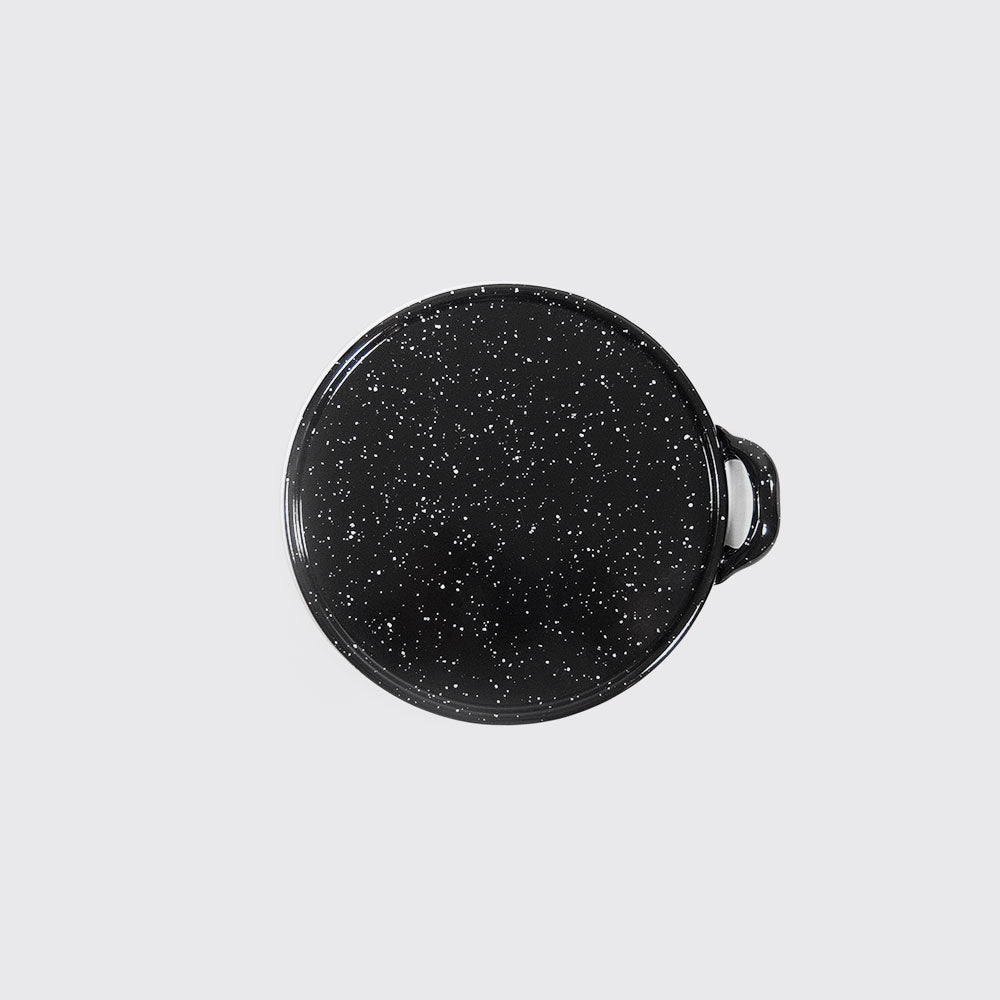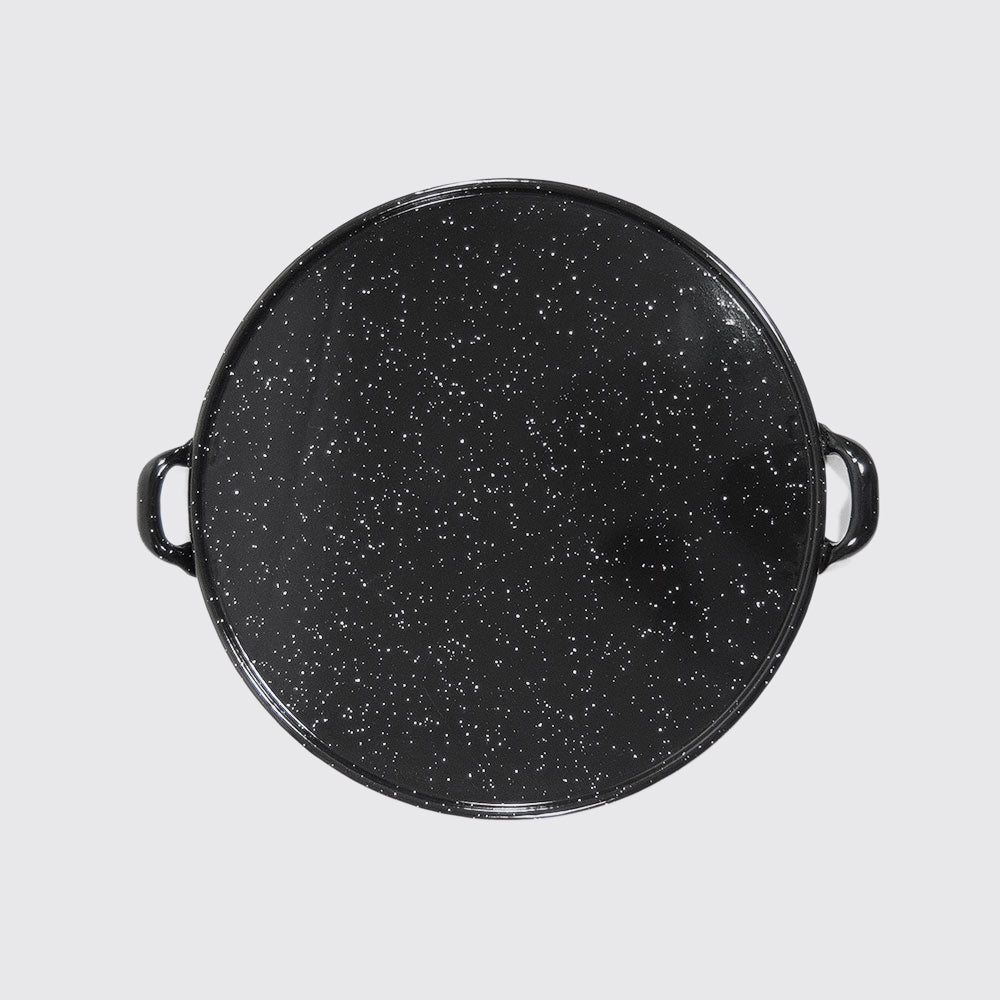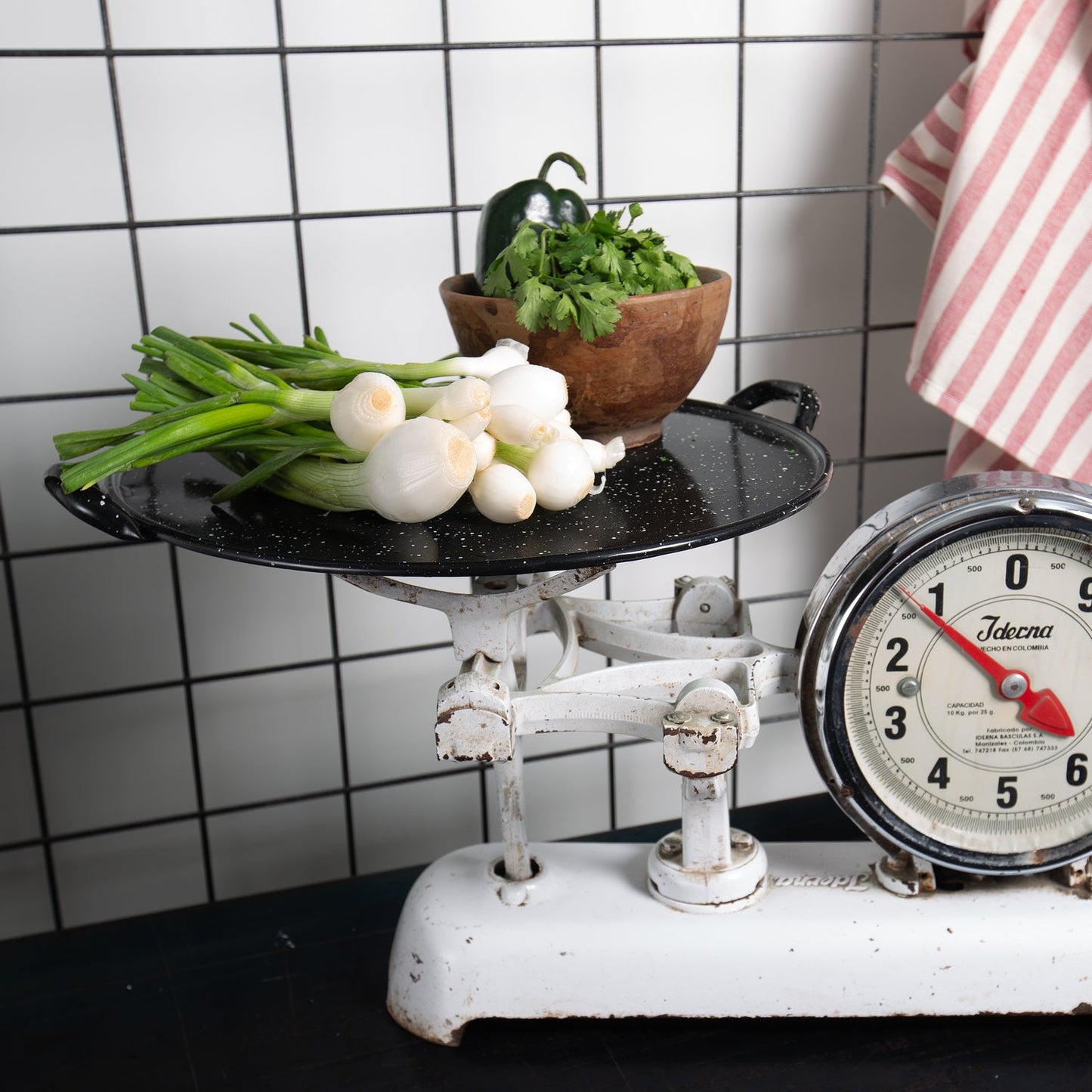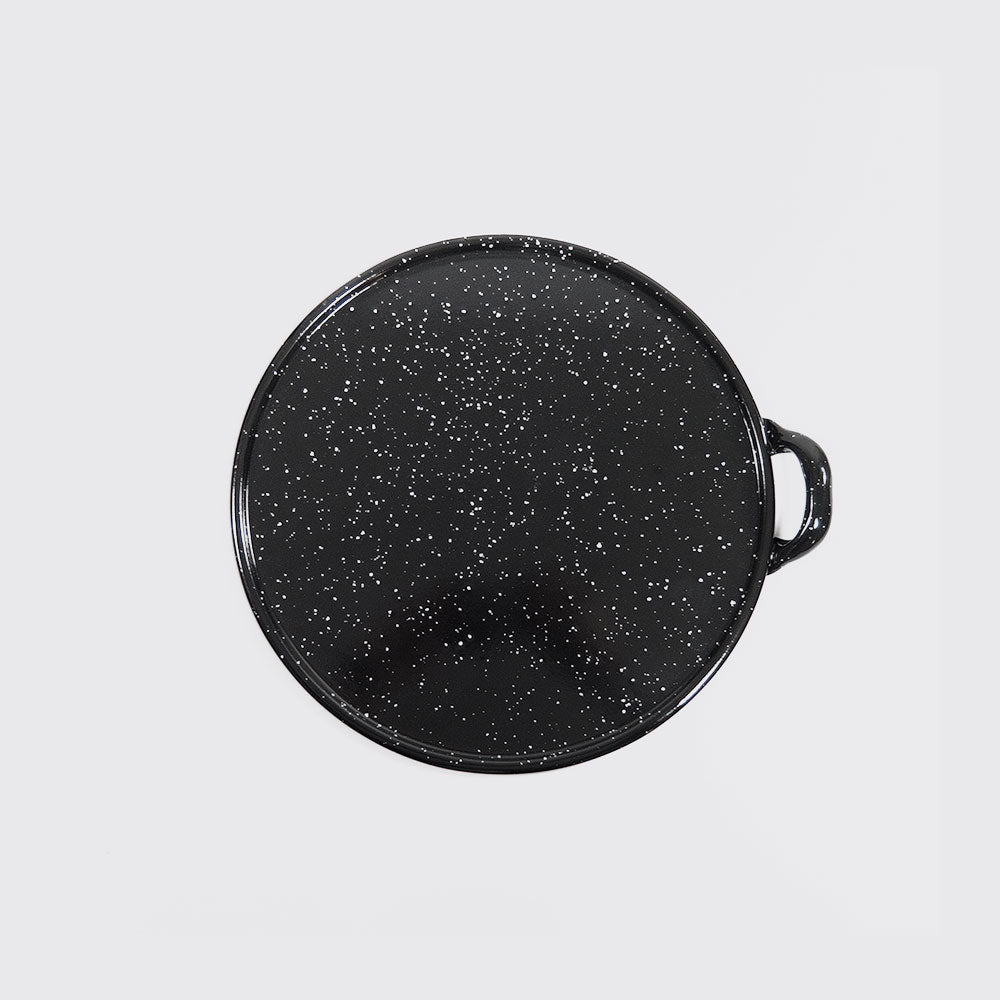ENAMEL STEEL COMAL
ENAMEL STEEL COMAL
Couldn't load pickup availability
The use of enamel in Mexico dates back to the 19th century, but it wasn't until the 1930s that it gained popularity when a craft industry producing high-quality kitchen utensils emerged, making it a symbol of Mexican culture and identity.
For many years, enamel was the preferred material for manufacturing kitchen utensils in Mexico due to its durability, resistance to corrosion, and ease of cleaning. However, in the 1980s, its popularity waned as other materials like stainless steel and ceramics began to have a larger presence in the market.
Today, enamel is being revalued for its beauty, its connection to Mexican culture, its versatility, and its qualities: it's non-toxic, more resilient and durable than ceramics and glass, can be used over direct flame, doesn't alter the taste of food, is easy to clean, inhibits the growth of bacteria, and doesn't retain odors or residues.
Material: Enamel steel.
3 available sizes:
Small: 22 cm. 300 g. / 8.6 in.
Medium: 28 cm. 450 g. / 11.0 in.
Large: 36 cm. 660 g. / 14.2 in.
Made in Mexico.
Enamelware Care
Enamelware Care
Enamel is an exceptionally strong and durable material. Here are some recommendations to ensure your enaml utensils remain in optimal condition:
Qualities: Stronger than ceramic and glass, non-toxic, doesn't alter the taste of food, doesn't retain odors or residues, and can be recycled for casting.
Versatile resilience: Enamel utensils are suitable for a variety of uses. You can safely use them on stovetops, ovens, and direct flame. Note that a temperature limit of 530F / 270C is recommended to preserve their integrity.
Dishwasher and cold-friendly: Enamel utensils are dishwasher safe. You can also store them in the refrigerator or freezer without concerns. Their ability to withstand temperature changes is impressive.
Microwave caution: Please note that enamel utensils are not suitable for microwave use. Avoid placing them in this appliance to preserve their quality and prevent damage.
Care and cleaning: To remove tea or coffee residue stains, you can apply lemon juice to the surface. For stubborn baked-on food, soak the utensil in warm soapy water. Avoid using abrasive sponges or brushes that might scratch the material. Coat the utensil with a thin layer of oil before cooking or baking to facilitate easy cleaning afterwards.






